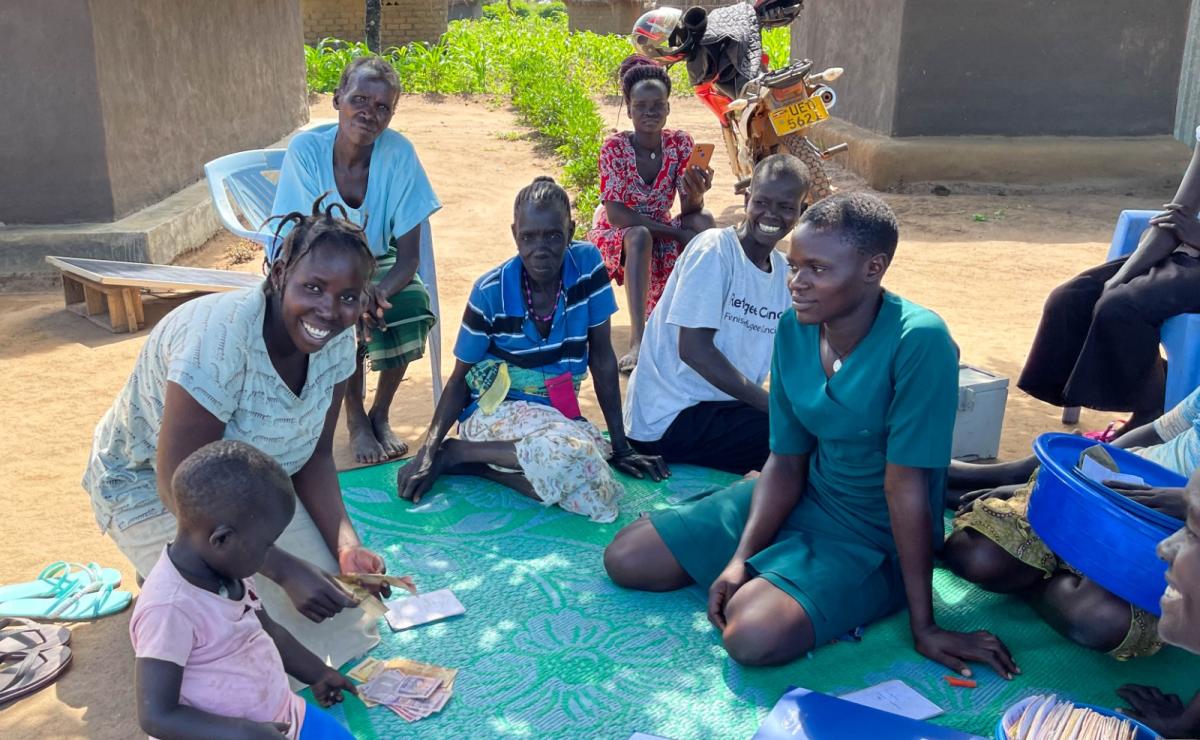From Selling Food Rations to Self-Sufficiency through the multipurpose cash assistance

Forced to seek refuge from her home in South Sudan and relocated to Palabek refugee settlement, Grace Mandera, like many refugees, struggled to meet her basic needs beyond the food rations she received in the settlement.
In a bid to make ends meet, Grace resorted to selling portions of their rations, like posho for 40,000 shillings (10.70$) and beans for 10,000 shillings (2.68$), barely scraping together 50,000 (13.38$) shillings a month. "Settlement life is not easy," Grace explains. "I had to sell some of the food we received to get money for clothes, shoes, soap, and school supplies for my children." Desperate to fulfill her family's needs, selling food rations meant skimping by on just one meal a day for Grace, her five children and her mother.
Adding to her struggles, Grace's husband's alcoholism led to a difficult separation, leaving her to provide for herself and her children.
A turning point came when Grace's block leader informed her that her household was among the many to benefit from the Lutheran World Federation (LWF) multipurpose cash assistance. Funded by the Directorate General for European Civil Protection and Humanitarian Aid Operations and implemented by the Uganda Cash Consortium, this program offers unconditional cash to vulnerable refugee families. The amount varies based on household size, with each person receiving 40,000 shillings (10.70$) monthly. Additionally, a one-time cash transfer to purchase a phone and SIM card or open up a bank account of 40,000 shillings (10.70$) is given to help families receive the cash assistance digitally.
"I was enrolled on MPCA, sensitized about the project, and started receiving monthly cash transfers to my Equity account from August 2023 for 5 months.," Grace says.
The first month's stipend of 360,000 shillings (96.31$), including a phone allowance of 40,000 shillings (10.70$), provided Grace with more financial security. Thereafter, each family member received 40,000 shillings for five months. She began saving 10,000 shillings each week in a VSLA (Village Savings and Loan Association) group called WINYE BER started by African Women Rising.
Grace's foresight paid off. After two months of saving, she secured a loan of 150,000 shillings (40.13$) from the VSLA. "I gave the money to my mother who used it to clear land and plant sorghum and sesame," Grace explains. This investment not only provided food security but also opened doors for future income generation.
The cash assistance also empowered Grace to care for her children's health. "I was finally able to afford any medication they needed," she says.
Grace's story is an admirable example of how cash assistance fosters self-sufficiency. "I wouldn't have been able to save without this program," she affirms. In my community, some of the people receiving cash assistance are really vulnerable. With this cash assistance, I can see they no longer have to do hard casual work to get some cash and meet their needs," Grace added.
Through the support of LWF and the Cash Consortium, she has transitioned from a state of dependency to one of self-reliance, illustrating the transformative power of financial aid in refugee communities.

